The number of Canadians who are food insecure is on the rise, with one in eight households now reporting they do not have access to an adequate diet of healthy food due to financial constraints. It’s a situation Captains Michael and Susan Ramsay, who lead The Salvation Army’s Alberni Valley Ministries in Port Alberni, B.C., know all too well. In this small Vancouver Island town, hundreds of people do not know where their next meal is coming from—and the past year has only made things worse.
“Food insecurity was already an issue in Port Alberni, and the pandemic has pushed people who were barely making it over the edge,” says Captain Michael Ramsay.
Since March 2020, the Army has been combating this increase in food insecurity, developing a multifaceted program that touches people throughout the valley. The reach is as big as the need—as of May 31, the Army had fed and cared for people more than 155,000 times since the pandemic began.
“I don’t think any of us could have predicted that amount of need,” says Captain Ramsay. “It was dramatic.”
Rapid Response
Prior to the pandemic, The Salvation Army had been operating the town’s only food bank, as well as the soup kitchen at the Bread of Life Centre. That put the Army in a good position to lead the charge in offering food assistance following the onset of COVID-19. In partnership with several other community agencies, such as Canadian Mental Health, the Army was able to quickly identify those who needed that support.
“Between the soup kitchen and the food bank, we were feeding 300 families a week pre-pandemic,” notes Captain Ramsay. “At the height of our pandemic response, we were feeding more than 700 individuals a day.”
The backbone of the Army’s early response was a food delivery service.
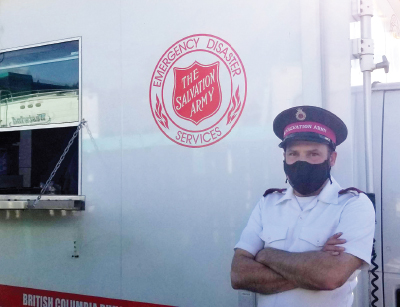 For Cpt Michael Ramsay, each shift on the Army’s community response unit is a blessing
For Cpt Michael Ramsay, each shift on the Army’s community response unit is a blessing
Robert Borrett was one of those drivers. A trucker by trade, Borrett was working in Fort McMurray, Alta., when the pandemic hit and he suddenly found himself laid off. As a longtime member of the corps, Borrett had volunteered over the years when his work schedule allowed; now, he had an opportunity to put his professional skills to good use.
“It all fell together,” he recalls. “They needed me at the same time as I needed them.”
He immediately joined the effort, spending up to 20 hours volunteering with the Army each week.
Seven Days a Week
As restrictions have shifted since the pandemic began, and additional resources have become available, the Army has adjusted its ministries accordingly.
One crucial addition to the Army’s food programs was a community response unit (CRU), which arrived in 2020.
“Before the CRU, people who were homeless and housing insecure had to come to our doors to pick up food because they didn’t have a deliverable address,” Captain Ramsay notes. “With the CRU, we are able to take food to where they are.”
The CRU travels to five different locations around town, serving approximately 200 people every time it goes out. For Captain Ramsay, each shift on the CRU is a blessing. “I can’t tell you the number of times people have come with tears of joy, letting us know that they wouldn’t have been able to eat at all without The Salvation Army,” he shares.
Until recently, the CRU was going out every day, but as the Army has finally been able to reopen its soup kitchen from Monday to Friday, it is now going out on weekends and some weeknights, ensuring there is food service seven days a week.
While closed because of the pandemic, the soup kitchen underwent a massive renovation. “We were able to double the floor size, so even with social distancing, we can accommodate a large number of people,” Captain Ramsay explains. There are also plexiglass shields on tables to create additional barriers against the spread of COVID-19.
For food insecure people who can’t get to the soup kitchen or a CRU location, the Army started a food cupboard program at three churches around town. “People can come and take what they need, or leave what they don’t need,” Captain Ramsay says. “We haven’t had to stock them much at all because the food is being supplied by the community.”
The Army’s food bank services have also had a boost, thanks to a new truck. Last fall, Borrett was tasked with helping the Army find a large refrigerated truck, which would allow the Army to move more food than with its existing cube van. Borrett embraced the task gladly, finding a 10-tonne truck for just $60,000. “It was a spectacular deal,” he smiles. “We now have the largest truck on Vancouver Island, as far as food banks go.”
At this time, Borrett is one of the only Army people qualified to drive the truck, moving food up and down the island as needed. “The main service organization here in the valley is The Salvation Army,” he notes. “When people have needs and you can meet them—especially when nobody else is out there to do it—that’s meaningful for me.”
Being the Gospel
Borrett is not the only member of the corps to be involved in the church’s food ministry. While the church was not able to meet normally for much of the pandemic due to gathering restrictions, Captain Ramsay found a clever workaround for worshippers: Sandwich Church.
“We’d do an opening prayer, read Scripture and then make sandwiches that would go out on the food truck that afternoon,” explains Captain Ramsay. “It was such a blessing for people in the congregation to have a safe way to contribute and serve God.”
As COVID restrictions have relaxed, the corps now meets for a socially distanced church service on Sundays before making sandwiches.
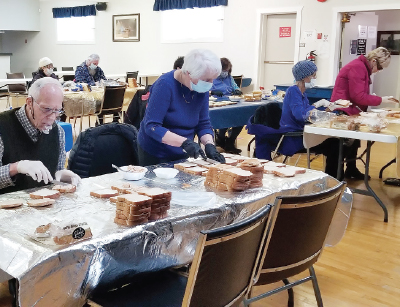 Members of the corps in Port Alberni make sandwiches as part of “Sandwich Church”
Members of the corps in Port Alberni make sandwiches as part of “Sandwich Church”
“The number of doors that’ve opened to share the gospel and be the gospel—it’s been amazing,” says Captain Ramsay. “Some people that I’ve prayed with during our food ministry have given their lives to the Lord, and now they’re volunteering, praying with people, handing out the groceries or serving at the soup kitchen.”
Earlier this year, Captain Ramsay started a weekly Bible study for men who volunteer with driving. Borrett is a member of this tight-knit group, as is Brian Lane, who also takes part in Sandwich Church. “I don’t know much about the Bible and I like history, so it’s nice to go, be part of the discussion, read the Bible and pray,” he says.
Providence
Reflecting on the past year, Captain Ramsay acknowledges that this ministry would not be possible without the support of the Port Alberni community—volunteers, other service providers and NGOs, churches, businesses and the local government.
“I am so thankful to our staff, volunteers and community partners,” he says. “You can really see God’s providential hand in the midst of the worst parts of the pandemic. It’s only through him that we were able to come together in this way and be used by him. God went before us and established the relationships that we could then build on to do this ministry.”
This story is from:




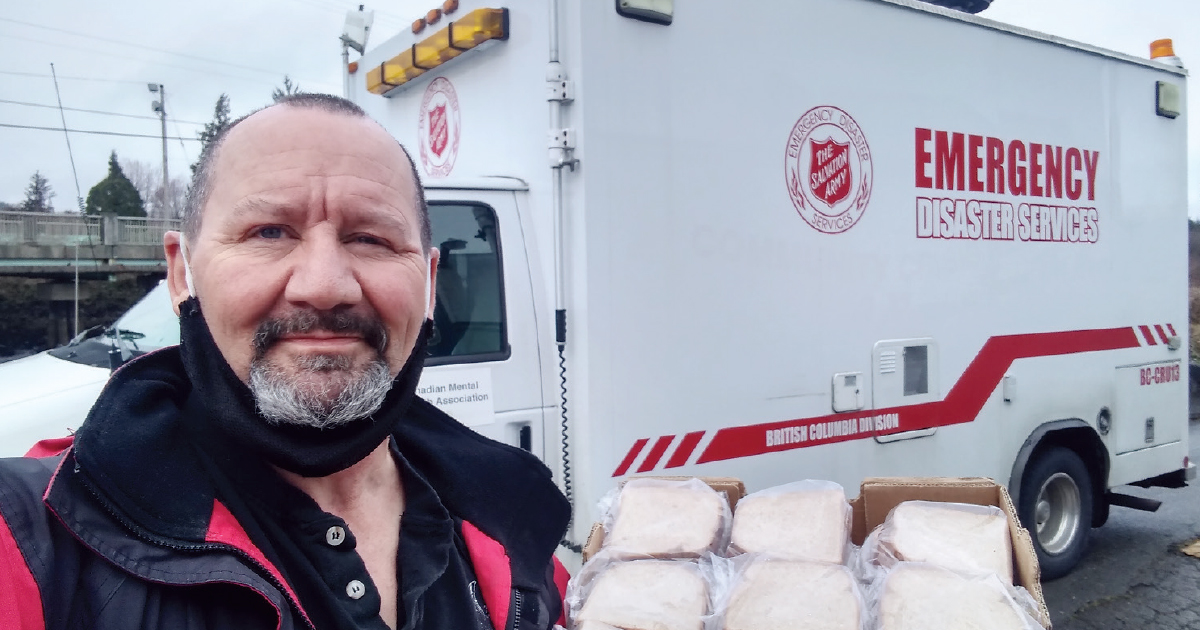
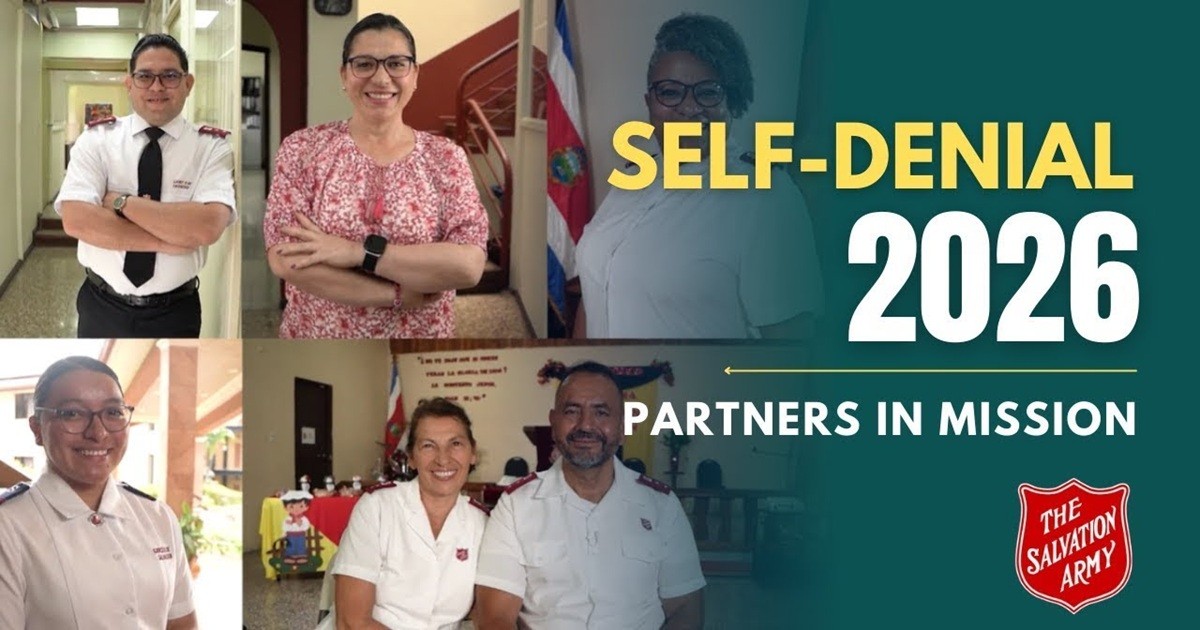

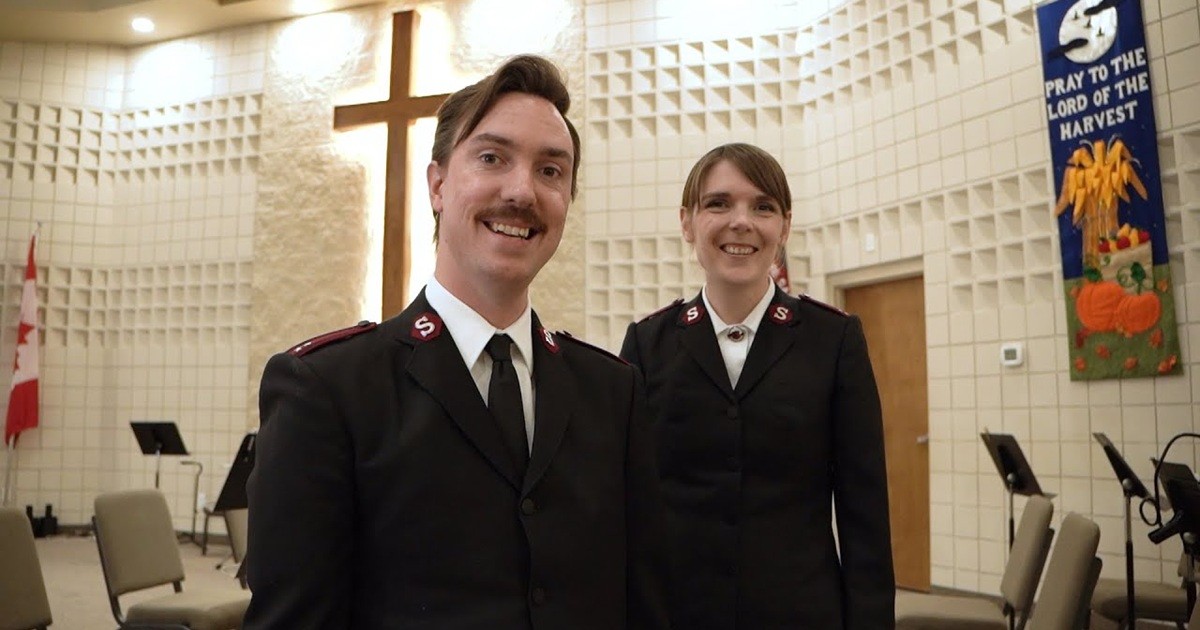


Leave a Comment